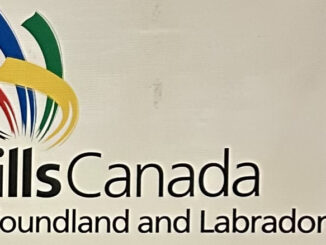Advocacy group says allowing competition will lead to better phone plans.
Nick Travis
Kicker

Rogers, Bell and Telus, known as Canada’s big three telecom providers, offer the least competitive phone plan prices among 48 countries according to a new study by Helsinki-based ReWheel Research.
Canadians pay the highest phone plan prices in the developed world.
OpenMedia is an advocacy group pushing for affordable and open Internet services. According spokeswoman Erin Knight, the issue is a lack of competition brought about by regulation from Canadian Radio-Television and Communications, also known as the CRTC. The CRTC is Canada’s regulatory body for broadcasting and telecommunications.
“The regulatory environment, lately at least, has really been leaning towards supporting the incumbents – supporting the big three,” said Knight from her office in Calgary.
Knight believes the solution is for the CRTC to allow competition in Canada from mobile virtual network operators. These companies are wireless service providers who buy bulk access to network services from larger telecom companies at wholesale prices. They then resell these services to consumers at competitive rates.
“MVNO’s might be the clearest way to improve cellphone affordability in the country.”
“We truly do think that MVNO’s might be the clearest way to improve cellphone affordability in the country,” said Knight. “The government has to allow them into the market and allow them to flourish in a regulatory environment that supports them. These are smaller wireless providers who can actually boost competition in the market and therefore disrupt the big three’s well-established monopoly.”
Operators such as Toronto-based Ting mobile have tried their hand at providing services in Canada only to face regulatory and industry roadblocks. Ting now provides its services in the United States despite being based in Canada.
Jesse Simms, a St. John’s native who acts as Ting’s sponsorship and strategic partnerships manager, thinks the CRTC needs to side with consumers and allow providers like Ting to operate in Canada.
“It’s not actually Bell and Rogers fault because they’re public companies,” said Simms, who is working from his home in Toronto. “They’re beholden to shareholders who want them to make as much profit as possible.”
“Data caps should not exist…”
The federal government has called on the big three providers to slash their phone plan prices by 25 per cent over the next two years in an effort to solve this problem. Knight doesn’t see this as a solution that will bring about real change in what consumers pay, saying that more competition is the only way to drive these prices down.
“So while I think it was good-intentioned, this program would have never resulted in an actual 25 per cent price reduction across the board.”
OpenMedia believes that in the future everyone should have access to large data plans. They don’t believe this is achievable if the CRTC doesn’t allow competition and maintains the monopoly of Bell, Rogers and Telus.
“Data caps should not exist and people who are low income should be allowed to use the same amount of data as other people,” said Knight. “While there’s many options, two gigabytes of data is really restrictive for most people.”
The CRTC declined comment saying government deliberations are currently ongoing.




Be the first to comment